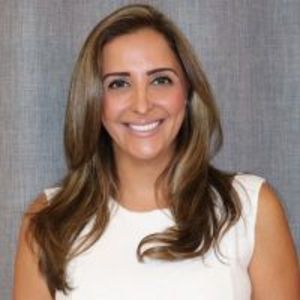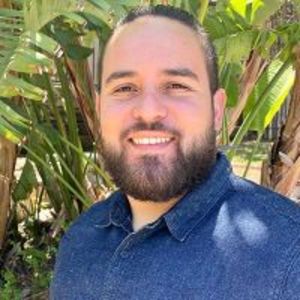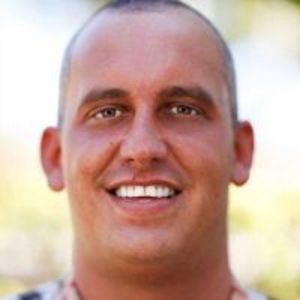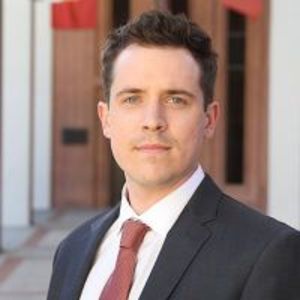






Hillcrest Recovery
Verified Center
This provider's information has been quality-checked by Recovery.com's Research Team for accuracy and completeness, including center verification through appropriate third-party organizations.
Treatment Focus
This center treats substance use disorders and co-occurring mental health conditions. Your treatment plan addresses each condition at once with personalized, compassionate care for comprehensive healing.
Primary Level of Care
Offering intensive care with 24/7 monitoring, residential treatment is typically 30 days and can cover multiple levels of care. Length can range from 14 to 90 days typically.
Treatment Focus
This center treats substance use disorders and co-occurring mental health conditions. Your treatment plan addresses each condition at once with personalized, compassionate care for comprehensive healing.
Primary Level of Care
Offering intensive care with 24/7 monitoring, residential treatment is typically 30 days and can cover multiple levels of care. Length can range from 14 to 90 days typically.
Provider's Policy
We accept most PPO insurance plans and carry a multi-plan agreement with a few larger carriers. Hillcrest Recovery offers private pay options as well. Please contact one of our admissions specialists to learn about treatment options.
Hillcrest Recovery
Hillcrest Recovery
About Hillcrest Recovery
Hillcrest Recovery takes a fully holistic approach to treatment, prioritizing healing and rejuvenating the spirit along with mind and body. With all three components addressed and restored, they believe true healing can both begin and last. Hillcrest Recovery addresses substance use and co-occurring disorders using medical methods and holistic treatment, beginning with a fully monitored detox. Their luxurious setting provides comfort and serenity, something those struggling with addiction may be lacking. With a powerful combination of holistic and medical care, plus Hillcrest’s restorative amenities and accommodations, recovery becomes something clients can begin and maintain with confidence.
A Comprehensive, Holistic Approach
During their stay, clients will meet with a psychiatrist twice a week and engage in weekly group therapy sessions. Daily exercise, yoga and meditation sessions, and massage therapy make up some of Hillcrest’s holistic activities. Hillcrest also provides expressive activities, like acting classes, music groups, and creative writing classes. This combination of quality medical care and holistic healing effectively helps treat co-occurring disorders like anxiety, depression, post-traumatic stress disorder, and bipolar disorder. Brilliant clinical and non-clinical staff members help make each client feel seen, welcome, and understood, beginning with the thorough assessments and tailored treatment plans Hillcrest’s experts craft.
Family Programming And Care
During treatment, Hillcrest combines holistic activities with evidence-based methods, including family therapy, 12-Step meetings, medication-assisted treatment, and cognitive behavioral therapy. Hillcrest Recovery’s family program focuses on repairing relationships impacted by substance use through family therapy. After treatment, clients will continue to have access to a flourishing alumni community, which supports graduated clients on their journey to recovery.
Beautiful, Expansive Lodging
Set in the Chatsworth area of Los Angeles, clients can rest and recover on the pristinely beautiful grounds and lodging of Hillcrest Recovery. They have a large outdoor patio with a swimming pool and outdoor games, an outdoor basketball court, a recreation room, shared and private bedrooms, and comfortable lounge and dining spaces within the house. Under the care of expert medical and mental health staff, and fitness instructors, clients can address the root causes of their addiction and become the best versions of themselves. Hillcrest Recovery is Joint Commission accredited and accepts both public and private insurances.

Center Overview
Treatment Focus
This center treats substance use disorders and co-occurring mental health conditions. Your treatment plan addresses each condition at once with personalized, compassionate care for comprehensive healing.
Joint Commission Accredited
The Joint Commission accreditation is a voluntary, objective process that evaluates and accredits healthcare organizations (like treatment centers) based on performance standards designed to improve quality and safety for patients. To be accredited means the treatment center has been found to meet the Commission's standards for quality and safety in patient care.
Insurance Accepted
Cash Pay Rates
Estimated Cash Pay Rate
Center pricing can vary based on program and length of stay. Contact the center for more information. Recovery.com strives for price transparency so you can make an informed decision.
Meet Your Care Team

Dr. Shannon Dobbs
Clinical Director
PsyD.

Geoffrey A. Booth
Medical Director
M.D.

Dr. Rod Amiri
Psychiatrist
M.D.

Jordan Aronoff
Program Director
B.A. in Behavioral Sciences

Jackie Smith
Director of Nursing
LVN

Tina Aghai
Therapist
Master’s in Clinical Psychology, Marriage and Family

Alan Cortes
Case Manager
B.A. degree in Psychology

Nick Jarvis
Director of Admissions

Maxwell Marino
Alumni Coordinator




Levels of Care






Your Care Options
Specializations
Co-Occurring Disorders
A person with multiple mental health diagnoses, such as addiction and depression, has co-occurring disorders also called dual diagnosis.
Drug Addiction
Drug addiction is the excessive and repetitive use of substances, despite harmful consequences to a person's life, health, and relationships.
Family Involvement
Providers involve family in the treatment of their loved one through family therapy, visits, or both–because addiction is a family disease.
Executive Program
Addiction and mental health treatment for executives typically involves high discretion, greater technology access, and more private, 1-on-1 care.
Alcohol
Using alcohol as a coping mechanism, or drinking excessively throughout the week, signals an alcohol use disorder.
Who We Treat
Young Adults
Emerging adults ages 18-25 receive treatment catered to the unique challenges of early adulthood, like college, risky behaviors, and vocational struggles.
Midlife Adults
For adults ages 40+, treatment shifts to focus on the unique challenges, blocks, and risk factors of their age group, and unites peers in a similar community.
Approaches
Personalized Treatment
The specific needs, histories, and conditions of individual patients receive personalized, highly relevant care throughout their recovery journey.
Twelve Step
Incorporating spirituality, community, and responsibility, 12-Step philosophies prioritize the guidance of a Higher Power and a continuation of 12-Step practices.
Evidence-Based
A combination of scientifically rooted therapies and treatments make up evidence-based care, defined by their measured and proven results.
Family Involvement
Providers involve family in the treatment of their loved one through family therapy, visits, or both–because addiction is a family disease.
Individual Treatment
Individual care meets the needs of each patient, using personalized treatment to provide them the most relevant care and greatest chance of success.
Therapies
Dance Therapy
This experiential therapy uses dance to improve body awareness, physical health, and social skills.
Mindfulness-Based Cognitive Therapy
MBCT combines mindfulness practices—like meditation—with cognitive therapy techniques to help patients work through negative thought patterns.
Stress Management
Patients learn specific stress management techniques, like breathing exercises and how to safely anticipate triggers.
Narrative Therapy
Through narrative therapy, patients rewrite past events with a positive focus. They separate themselves from the problem to see their purpose and capabilities.
1-on-1 Counseling
Patient and therapist meet 1-on-1 to work through difficult emotions and behavioral challenges in a personal, private setting.
Family Therapy
Family therapy addresses group dynamics within a family system, with a focus on improving communication and interrupting unhealthy relationship patterns.
Conditions We Treat
Trauma
Some traumatic events are so disturbing that they cause long-term mental health problems. Those ongoing issues can also be referred to as "trauma."
Substances We Treat
Cocaine
Cocaine is a stimulant with euphoric effects. Agitation, muscle ticks, psychosis, and heart issues are common symptoms of cocaine abuse.
Prescription Drugs
It's possible to abuse any drug, even prescribed ones. If you crave a medication, or regularly take it more than directed, you may have an addiction.
Benzodiazepines
Benzodiazepines are prescribed to treat anxiety and sleep issues. They are highly habit forming, and their abuse can cause mood changes and poor judgement.
Ecstasy
Ecstasy is a stimulant that causes intense euphoria and heightened awareness. Abuse of this drug can trigger depression, insomnia, and memory problems.
Co-Occurring Disorders
A person with multiple mental health diagnoses, such as addiction and depression, has co-occurring disorders also called dual diagnosis.
Drug Addiction
Drug addiction is the excessive and repetitive use of substances, despite harmful consequences to a person's life, health, and relationships.
Chronic Relapse
Consistent relapse occurs repeatedly, after partial recovery from addiction. This condition requires long-term treatment.
Heroin
Heroin is a highly addictive and illegal opioid. It can cause insomnia, collapsed veins, heart issues, and additional mental health issues.
Languages
Aftercare
Care Designed for Your Needs
Personal Amenities
Amenities
Special Considerations
Gender-specific groups
Patients in gender-specific groups gain the opportunity to discuss challenges unique to their gender in a comfortable, safe setting conducive to healing.
Activities
Yoga
Yoga is both a physical and spiritual practice. It includes a flow of movement, breathing techniques, and meditation.





